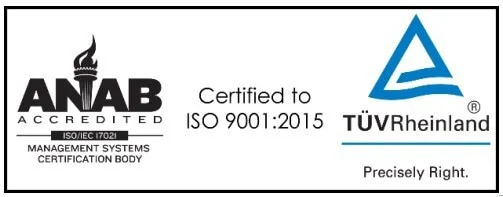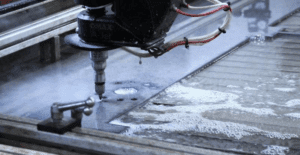
Outsourcing product and process manufacturing is gaining popularity in many industries, and for good reason. Choosing to partner with a trusted contract manufacturer can empower visionary and creative owners, senior leaders, and management teams to focus on growing their business without having to worry about logistics, employees, and other day-to-day aspects of manufacturing their product.
Deciding to work with a contract manufacturer can be a big step for some companies, especially start-ups or brands who are currently manufacturing in-house. Why, then, are so many businesses deciding to partner with contract manufacturers?
10 Benefits of Working with a Contract Manufacturer
From saving time and money, to simplifying the manufacturing process, and relieving businesses of the burden of hiring and managing employees, working with a contract manufacturer can prove to be beneficial for your company.
Control Manufacturing Labor Costs
Direct and indirect labor costs represent the highest single expense for most businesses. For this reason, stabilizing and reducing manufacturing labor costs is a common objective. Because individual employees vary in their productivity, when a manufacturing company produces in-house, the cost of goods that are produced varies from day-to-day. Gaining control of manufacturing labor costs requires ongoing management oversight, which is time-consuming and eats in to manufacturing profits.
Individual workers’ production rates are determined by variables that are difficult to manage such as personal motivation, attitude, mental and physical health, sleep, substance use, and many others. General dissatisfaction with an employee’s job, co-workers and working environment can all adversely affect the company’s bottom-line.
When choosing to outsource to a contract manufacturer, these variables are removed from the equation. Often, contract manufacturers will provide a fixed price per-unit, making it easier for companies to budget manufacturing costs, and ultimately achieve the stability they’re looking for. Hiring a contract manufacturer can effectively flatten-out variable manufacturing labor costs, along with relieving a headache or two.
Maintain a Cost-Effective and Consistent Labor Force
What does it cost to hire manufacturing workers?
According to the Society for Human Resource Management (SHRM), the average U.S. employer spends more than $4,000 to hire a new employee, and it takes approximately 42 days to fill an open position. But that’s just the cost to hire and train a new employee, When taking into account wages, benefits, and other factors, companies can spend way more than expected to maintain and grow a workforce.
Onboarding with a contract manufacturer can take as little as 2-3 weeks, saving the company valuable time and money. That same 42 day period it takes to fill a single position can be spent with a contract manufacturer to assemble, package, and ship your product, meaning it’s in stores, on the shelves, and generating revenue for you quicker.

Even if a company is lucky enough to fill their open manufacturing positions, there’s no guarantee the time and money invested in these new hires will pay off. For many manufacturers, a capable, trained, motivated, and available workforce continues to remain a key challenge. Gaps in the workforce can sometimes be filled with temporary employees, but that’s not always a guarantee, either.
Contract manufacturers provide immediate relief in a labor shortage, or an unpredictable workforce. In very short order, a capable contract manufacturer can deploy their workforce on a manufacturer’s behalf without the manufacturing company needing to invest in employees, or spend time on training that will ultimately not benefit them when employees don’t show for their shift, or decide to move on to a different position.
With a trusted contract manufacturer in your tool bag, a manufacturer can accept that new purchase order while conveniently bypassing the rigors of hiring, training and dealing with all of the human resource tasks involved.
Lower Overhead Costs
It’s easy for manufacturing companies to put a hard number on labor costs associated with producing their product, but oftentimes overhead costs are a forgotten expense that can be drastically reduced by outsourcing some or all work to a contract manufacturer. These costs include utilities – gas, electric, and water, – building maintenance, insurance, indirect materials, indirect labor, machine repairs, and more.
By reducing your employed workforce, and decreasing the space and equipment needed on-site due to outsourcing to a contract manufacturer, companies can eliminate many of the hidden overhead costs of running their business.
Increase Flexibility and Scalability
Your manufacturing business is growing. Do you lease, buy, build or add-on to your current space? Manufacturing and production space is one of the larger expenses for manufacturers. Add up the cost to buy, lease, build, heat, cool, insure and maintain a building, and expenses can quickly become overwhelming.
Another factor to consider is the ability to downsize if needed. Businesses can get stuck in leases and contracts that result in paying to shut-down, move people and equipment, clean out the space, and possibly continue paying for space that no longer has the manufacturing revenue to support it. Contract manufacturers make it easy – and far less costly – to increase or decrease your product output.
An experienced contract manufacturer has space available that is already engineered and outfitted for manufacturing use. When more (or less) space is needed, the contract manufacturer takes care of the logistics without ever needing to involve the manufacturing company.
Reduce Manufacturing Timelines and Stay on Schedule
The best manufacturers continuously seek ways to speed up their manufacturing processes, however running into production delays from time-to-time is unavoidable. Last-minute orders, expanded orders, new customers, labor shortages, and equipment failures can put your production schedule behind.
Partnering with a trusted contract manufacturer can enable quick and easy production volume scaling (up or down) without sacrificing quality or reputation, and without hiring production technicians, only to offer layoffs when production volume eases.
These quick adjustments in production and workforce means deadlines are met more frequently and tough conversations with customers never have to happen.
Improve Product Quality
Contract manufacturers who adhere to ISO 9001:2015 standards are repeatedly and consistently able to assure the production of higher quality products due to stringent standards. Consistent high-quality translates into fewer product returns, improved customer satisfaction, and increased repeat orders and referrals. Not only do manufacturing profits improve when these standards are met, but knowing that your name is on high quality products means less worrying about not delighting customers or meeting your bottom line.

Strengthen Technical Insight and Expertise
For start-up companies and fast-growing businesses, there are often times when gaps in manufacturing knowledge are realized. These challenges have the potential to slow down business growth, or stop it all together, if not addressed appropriately. Hiring someone with the skills, experience, and insight needed to offer the missing expertise may be nearly impossible depending on available resources, timing, and many other factors.
Relying on the knowledge and years of experience that a contract manufacturer holds is an added – and sometimes necessary – benefit to the partnership. Take advantage of their industry connections and in-depth knowledge that spans multiple industries to propel your business forward.
Utilize Proper Equipment and Advanced Technology
The initial investment of proper equipment and technology for manufacturing products can be astronomical and unrealistic for many small and medium sized businesses. Even larger manufacturing companies can face the uphill battle of deciding which machines to invest in, which to upgrade, and which to replace.
Besides the upfront capital investment, the constant costs associated with upkeep, plus securing the skilled employees to perform the repairs and maintenance, can prove to be too much for some companies.
When partnering with a contract manufacturer, companies can reap all the benefits of their already-purchased and well-maintained equipment without the hassle or expense of it. Producing products using the right machinery and technology will result in higher-quality products, faster production time, and ultimately, a smoother and more profitable business.
Improve Inventory and Supply Chain Management
Storing excess materials is yet another hidden cost that manufacturing companies incur. It may seem like no big deal to store away parts until they are needed, but when storage room space, temperature control, and labor costs are tallied up, it can equal more than what seems worth it.
Contract manufacturers are prepared for the storage and management of extra materials. With efficient organization, streamlined workflows, and automated processes already in place, the associated costs are minimal and the logistical hindrance is erased.
Better Allocate Resources and Talent
Not all business owners and senior leaders have an interest in taking on the sometimes daunting task of managing the manufacturing of their product and the HR, space, and logistical responsibilities that go along with it. If investing heavily in supply chain management, and managing hundreds of manufacturing employees isn’t how you were hoping to spend your time when other projects and responsibilities are calling your name, you might be a candidate for divesting some or all of your supply chain to a contract manufacturer.

Contract manufacturing clients are intentionally insulated from the environment of the daily factory grind, empowering them to focus on:
- Long- and short-term planning and strategizing
- Analyzing new business opportunities
- New product development
- Existing product improvement
- Sales and marketing initiatives
- Improving customer satisfaction
- Increasing repeat and referral sales
- Prioritizing internal team building
Focusing on these areas, without the distractions of managing a production operation, can result in increased time, more focus, less stress, and improved profits.
Partnering with a Contract Manufacturer for Your Business
With so many factors to consider, it can be difficult to decide if partnering with a contract manufacturer is right for your business. But, many manufacturing companies outsource to contract manufacturers to take advantage of the numerous benefits including saving money, cutting down on unwanted tasks, tapping into comprehensive industry knowledge, and embracing flexibility.
Choosing the right contract manufacturing company can help you grow your business without any unnecessary hassle.




